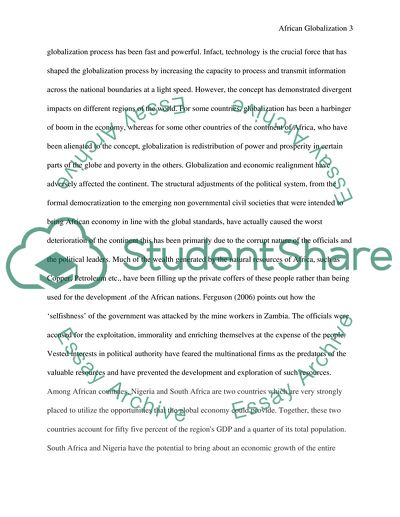Cite this document
(To What Extent Do Geographical Location and the Natural Environment Term Paper, n.d.)
To What Extent Do Geographical Location and the Natural Environment Term Paper. Retrieved from https://studentshare.org/macro-microeconomics/1719943-to-what-extent-do-geographical-location-and-the-natural-environment-constrain-the-integration-of-african-countries-into-the-global-economy
To What Extent Do Geographical Location and the Natural Environment Term Paper. Retrieved from https://studentshare.org/macro-microeconomics/1719943-to-what-extent-do-geographical-location-and-the-natural-environment-constrain-the-integration-of-african-countries-into-the-global-economy
(To What Extent Do Geographical Location and the Natural Environment Term Paper)
To What Extent Do Geographical Location and the Natural Environment Term Paper. https://studentshare.org/macro-microeconomics/1719943-to-what-extent-do-geographical-location-and-the-natural-environment-constrain-the-integration-of-african-countries-into-the-global-economy.
To What Extent Do Geographical Location and the Natural Environment Term Paper. https://studentshare.org/macro-microeconomics/1719943-to-what-extent-do-geographical-location-and-the-natural-environment-constrain-the-integration-of-african-countries-into-the-global-economy.
“To What Extent Do Geographical Location and the Natural Environment Term Paper”, n.d. https://studentshare.org/macro-microeconomics/1719943-to-what-extent-do-geographical-location-and-the-natural-environment-constrain-the-integration-of-african-countries-into-the-global-economy.


